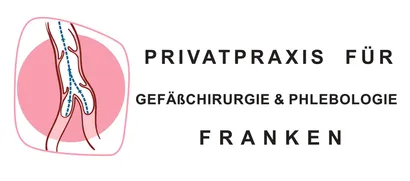Chronic Wounds: Etiology, Challenges, and Innovative Treatment Modalities
Chronic wounds pose a significant challenge for both affected individuals and medical professionals. Despite optimal standard care, they often exhibit delayed or absent healing, substantially impairing patients’ quality of life. However, innovative treatment modalities such as ozone bag insufflation, manuka honey therapy, and other advanced approaches can lead to significant progress in wound healing.
What are Chronic Wounds?
Chronic wounds are injuries to the skin and underlying tissue that fail to show a tendency to heal within a defined timeframe (typically 4 to 12 weeks). Common examples of chronic wounds include:
Ulcus cruris (leg ulcer): Often caused by venous disorders.
Diabetic foot syndrome: A consequence of impaired circulation and nerve damage in diabetes mellitus.
Decubitus ulcer (pressure ulcer/bedsore): Develops due to prolonged pressure, primarily in immobile patients.
Post-operative wound healing disorders: Especially in patients with risk factors such as diabetes, smoking, or immunodeficiency.
Etiology and Risk Factors

Chronic wounds frequently arise due to:
Circulatory disorders: Arterial or venous insufficiency compromising tissue perfusion.
Diabetes mellitus: Leading to impaired wound healing and an increased risk of infection.
Infections: Bacterial colonization, particularly with multidrug-resistant organisms.
Immunodeficiency: Impairing the body’s regenerative processes.
Pressure and friction: A significant risk, especially in immobile patients.
Innovative Treatment Modalities for Chronic Wounds
Ozone Bag Insufflation:
Ozone bag insufflation is an effective method for treating chronic wounds. The affected extremity is placed in a special bag, which is then filled with medical ozone. Ozone exhibits potent antibacterial and antiviral effects and promotes blood circulation. It supports tissue oxygenation and activates the body’s own healing processes.
Manuka Honey Therapy:
Manuka honey possesses natural antibacterial properties and gently promotes wound healing. The honey exerts an osmotic effect, binding wound exudates and inhibiting bacterial growth. Additionally, it supports tissue regeneration and helps reduce inflammation.
Hydrotherapy and Moist Wound Healing:
Moist wound dressings create an ideal microenvironment for wound healing. They prevent wound desiccation, support the formation of new tissue, and reduce the risk of infection.
Negative Pressure Wound Therapy (Vacuum Therapy):
This method utilizes controlled subatmospheric pressure to remove wound exudates and promote blood flow. This accelerates wound healing and reduces the risk of infection.
Biological Therapies: Larval Therapy (Maggot Debridement Therapy):
In this method, sterile fly larvae are introduced into the wound to remove necrotic tissue. The larvae also release enzymes that promote healing and provide natural wound cleansing.

Skin Grafts and Advanced Wound Dressings:
In complex cases, skin grafts may be necessary. Modern wound dressings, such as silicone or collagen dressings, support healing through the targeted release of active substances and the creation of an optimal wound microenvironment.
Scientific Studies and Clinical Experience
Studies indicate that the combination of various innovative treatment modalities can significantly improve the healing of chronic wounds. In particular, ozone bag insufflation and manuka honey therapy have demonstrated considerable efficacy in clinical investigations. Practical experience corroborates that many patients who previously suffered from chronic wounds for years have experienced significant improvements through these modern approaches.
Conclusion: Advanced Wound Care for Enhanced Quality of Life
Chronic wounds necessitate a holistic and individually tailored therapy. The implementation of innovative methods such as ozone bag insufflation, manuka honey therapy, and other advanced techniques can shorten protracted healing processes and substantially enhance patients’ well-being. Please do not hesitate to schedule an appointment to learn more about our specialized wound care services.

